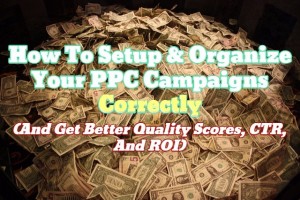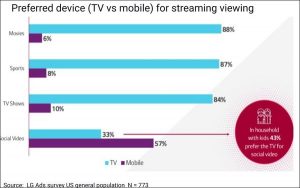The art/business/chaos of understanding Search Engine Optimization (SEO) can be daunting. Especially as popular search engines consistently refine their algorithm. But regardless of what goes into crafting their super-secret special sauce, here are some terms that will help explain what SEO is all about, and can also assist with improving your own rankings:
Nice Try: once upon a time, search engines were easy to fool and manipulate. But over the years, as their algorithms have evolved, search engines have become adept at ignoring –and, in some cases, penalizing—bad practices like link-building schemes and hiding keywords on your page (by disguising repeated words in the color of your website)
Organic Search Results: based purely on relevance, this refers to the Web page listings that result following a user’s search query. As opposed to “non-organic search results,” which refers to paid placement and advertisements like the following…
Pay Per Click (PPC): an internet advertising model intended to direct traffic to websites, who in turn pay a fee each time their ad is clicked (also known as also called “Cost Per Click”)
Quality Link: to a search engine, links are kind of like votes of trust. But unlike the votes in a general election, not all votes count equally. So what amplifies the quality of a link? Things like Age (brand new links are inherently less reliable), Source (the more trusted a source, the better) and location (links appearing in the body of a text are more valuable).
Really Simple Syndication (RSS): a service that instantly deploys new content to users who subscribe to your site. Typically used with blogs so that followers are notified when new content is available.
Search Engine Results Page (SERP): this is the list of results that a search engine returns in response to a query for a specific keyword or phrase. In most cases, users will only look at the first one or two pages; so the higher up in the results you are, the better chance you’ll be able to attract new visitors.
Top-Heavy: this refers to webpages that feature a high ad density above the fold as well as sites that make it difficult for a user to find content in the face of pervasive advertisements. Search engine algorithms are on the look out for this, and penalize offenders accordingly.
URL-Rewrite: this is a technique used to make URL’s more unique (and keyword-friendly) in order to be treated more favorably by search engine indices.
Viral Marketing: a method of product promotion that relies on getting customers to market an idea, product, or service on their own by telling their friends about it; typically through e-mail or social media. In the SEO universe, “going viral” is the holy grail. As such, it’s not usually something that can be counted on, but is absolutely something worth striving for at all times.
Weblog: a term that probably hasn’t been used as such since 2007, but more commonly known by its shorter moniker: blog. Having a blog is not only a great way to provide your website with fresh content, but it’s a great way to engage with customers and further define your company’s brand.
Xenu Link Sleuth: a no-charge computer program, written by Tilman Hausherr, that checks websites for broken hyperlinks. It’s like getting a free assessment and evaluation for a skilled auto mechanic.
Yahoo, Bing, Ask and others: although Google is the most popular search engine out there, don’t forget that there are plenty of others worthy of your attention (each with their own unique set of SEO criteria).
Zoolander: as parting advice, let’s remember the immortal words of Derek Zoolander: “You might think that you’re too cool for school, but I have a newsflash for you Walter Cronkite…you aren’t.” In short: you may think that optimizing SEO is below you, but the truth is that this stuff really matters. And the good news is that, ultimately, what will best improve your SEO is high-quality content. Who can argue with that?
(192)
Report Post








